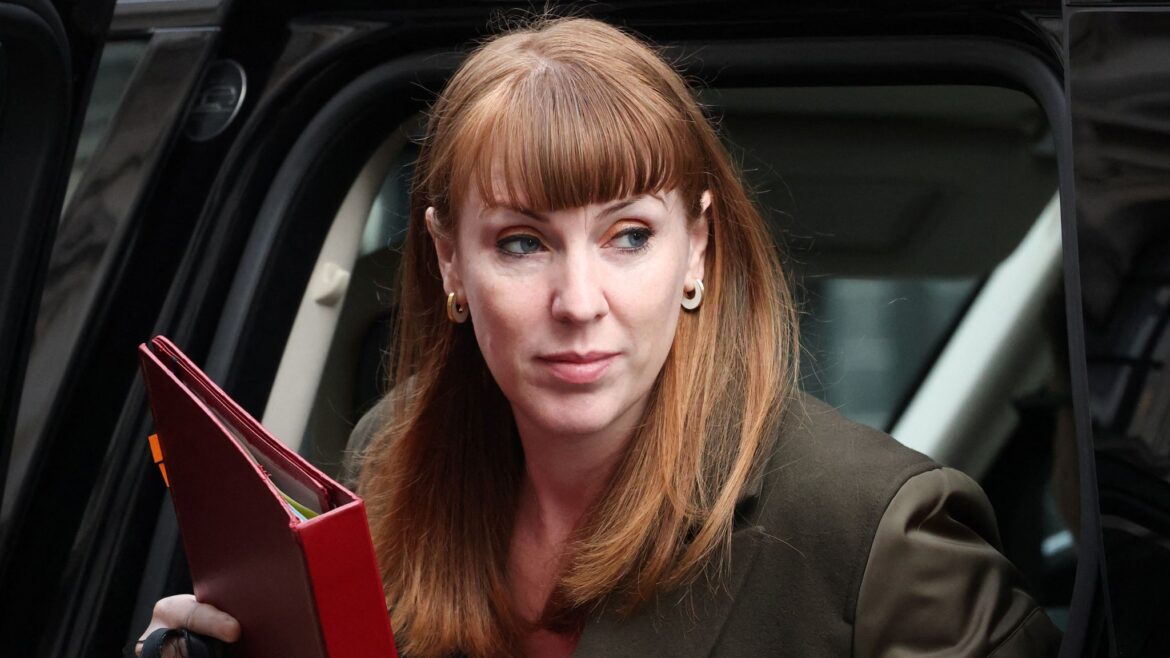In a dramatic turn of events, Deputy Prime Minister Angela Rayner has resigned from the Government following the delivery of an ethics report on her property dealings.
The moment came after her legal advisers were publicly accused of being made “scapegoats” for her underpayment of tens of thousands of pounds in stamp duty on a seaside property in Hove.
Rayner’s position had been looking increasingly precarious, especially after Prime Minister Sir Keir Starmer refused to rule out dismissing her, insisting he would “act” on the findings from Sir Laurie Magnus, his ethics adviser.
The Pressure Mounts on Rayner
Reports emerged earlier in the week that Rayner was expected to leave the Government, a move confirmed by sources including PA News and Sky News.
Her resignation is a significant setback for Starmer, who is already grappling with a challenging political climate following summer protests over immigration and other issues.
While Starmer can remove Rayner from her Cabinet post, her elected mandate as Labour’s deputy leader gives her a degree of independence, complicating the situation further.
Starmer Receives the Ethics Report
Sir Keir Starmer received the long-awaited report into Rayner’s tax affairs from Sir Laurie Magnus.
The investigation was prompted by Rayner herself after she admitted discrepancies in the stamp duty she paid on her £800,000 Hove property.
The Prime Minister now faces the task of determining whether his deputy breached the ministerial code.
Reactions from Opposition Parties
The scandal quickly drew attention from opposition leaders.
Conservative figures, including Kemi Badenoch, urged Starmer to sack Rayner immediately, arguing that her conduct was incompatible with her roles in setting tax and housing policy.
Shadow Chancellor Mel Stride accused Rayner of using the summer to expand her “property empire.”
Meanwhile, Liberal Democrat leader Sir Ed Davey offered a more sympathetic perspective, suggesting that Rayner may have been acting in the best interests of her disabled child.
Reform Party deputy leader Richard Tice criticized her position as “completely indefensible,” while former Brexit Party leader Nigel Farage questioned how she could maintain her role amid such scrutiny.
A Viral AI Video Puts Rayner in the Spotlight
Adding fuel to the controversy, a viral AI video has lampooned Rayner’s stamp duty scandal.
In the clip, she is portrayed as a rapper flaunting cash and rapping about dodging tax, humorously earning the nickname “Three Pads Rayner.”
The video references her underpayment of roughly £40,000 on her Hove property and has been widely shared online, highlighting both public fascination and ridicule surrounding the case.
Legal Advice and the Fallout
Rayner initially blamed her legal advisers for the mishap, claiming they misled her on stamp duty requirements.
However, Verrico & Associates, the firm involved, issued a statement clarifying that they had only calculated the duty based on information Rayner provided and had never given formal tax advice.
Other legal firms connected to Rayner also denied providing tax guidance, suggesting she may have misinterpreted advice or failed to seek proper counsel before completing the Hove property purchase.
Tax experts have questioned whether Rayner obtained adequate guidance before her public admission.
Rayner’s Personal Defence
Rayner has explained that her decisions were influenced by a trust set up for her disabled son, which holds a stake in her former family home.
She maintained that she acted in good faith, relying on multiple pieces of legal guidance, including from the trust overseeing her son’s affairs.
The Deputy Prime Minister emphasized that her actions were intended to protect her child’s interests and noted that public scrutiny of these deeply personal matters had been devastating for her.
Timeline of Events Leading to Resignation
Earlier this year, Rayner sold her interest in the Ashton-under-Lyne family home to her son’s trust, providing him with security over the property.
She purchased the Hove flat with the proceeds, believing she had paid the correct stamp duty.
Later, after seeking further advice, she realized she had underpaid due to complex provisions related to her son’s trust.
Following this revelation, she publicly admitted the underpayment, triggering the ethics investigation and intense speculation over her political future.
The Political Consequences
Rayner’s resignation marks a high-profile exit from the Government and adds to the pressures facing Starmer, who must balance party stability with public expectations for accountability.
While some allies defend her actions as understandable given extraordinary personal circumstances, the political fallout is likely to continue for months.
Her departure also raises questions about oversight in property and tax affairs for senior politicians, particularly those with complex family and trust arrangements.
